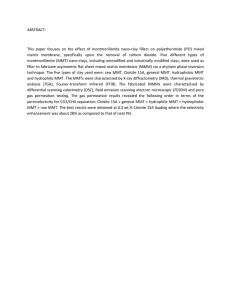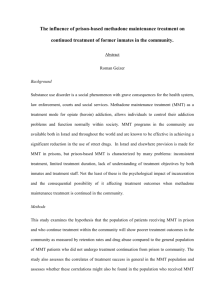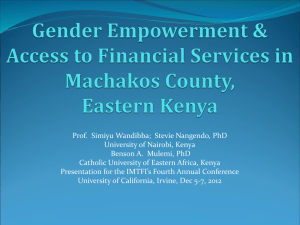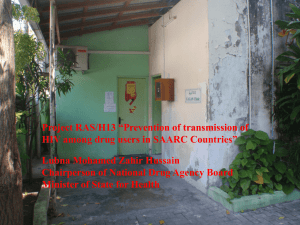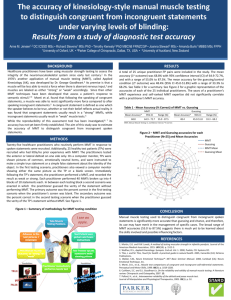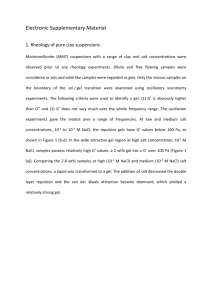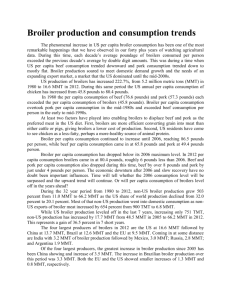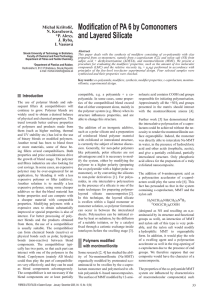MontesDeOca
advertisement
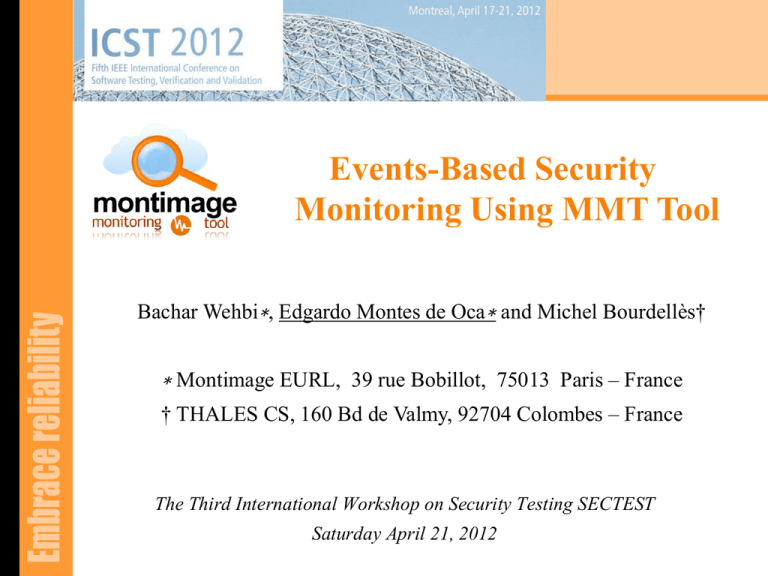
Events-Based Security Monitoring Using MMT Tool Bachar Wehbi∗, Edgardo Montes de Oca∗ and Michel Bourdellès† ∗ Montimage EURL, 39 rue Bobillot, 75013 Paris – France † THALES CS, 160 Bd de Valmy, 92704 Colombes – France The Third International Workshop on Security Testing SECTEST Saturday April 21, 2012 Presentation outline Montimage company overview Monitoring for security analysis Context and motivation State of art: tools and techniques Montimage Monitoring Tool Innovation MMT Features Modelling security properties Security analysis Discussion Case study Demonstration 19/04/12 2 Company Overview Montimage is an innovative SME Creation year: 2004 Location: 39 rue Bobillot – 75013 Paris Services Reliable software design and development Test and validation − Innovative testing and monitoring tools (functional, security, QoS) Flagship tool : Montimage Monitoring Tool (to be released 2012 as Open Source) 19/04/12 3 State of art: Tools and techniques Different methodologies: Signature based analysis: e.g. SNORT, Cisco intrusion prevention system Behavior based analysis: anomaly detection based on state-full protocol analysis: • • • 19/04/12 Using scripts, e.g. BRO (scripting language enabling protocol and semantic analysis), Hard coded security properties, proprietary tools Using Model, e.g. MMT State of art: Tools and techniques Different technologies: Network-based IDPS: examines network traffic and monitors multiple hosts Host-based IDPS: identifies intrusions by analyzing system calls, logs, file-system modifications... Wireless IDPS: specialized for wireless communication Network Behavior Analysis (NBA) Security Information and Event Management (SIEM): integrates and correlates different sources 19/04/12 State of art: Tools and techniques Problems: To many false positives due to bad traffic (bugs, corrupted and lost packets) Performance and scalability: tracking of simultaneous sessions Denial of service attacks are not based on incorrect behaviour Proposed solutions: Specialised detection and correlation of different data sources Distributed detection mechanisms: integrate and correlate different sources Combine different methods and techniques: QoS, machine learning, statistics, pattern matching... Transparency: open source engine, private rules 19/04/12 MMT Overview MMT Operator User defined reports · Monitoring & reporting · Web technology · Manages multiple probes Traffic DB Config MMT Probe Traffic Monitoring Add analysis modules Quality Monitoring Security Analysis HW/SW Probe Can be installed on dedicated HW Modular solution MMT Extract · · · · 19/04/12 DPI functionalities Traffic classification (150+ protocols) Protocol decoding & attributes extraction Extraction of metrics (Quality Index) Protocol Plugins Software library (SDK) Can be integrated in 3rd party SW Add plugins 7 MMT in a transport network Scenario MMT: Innovation Use of security properties to describe both wanted and unwanted behaviour Not exclusively based on pattern matching like most intrusion detection techniques More abstract description of sequence of events (MMT properties) Can integrate performance indicators, statistics and machine learning techniques; as well as countermeasures Allows combining centralised and distributed analysis to detect 0-day attacks (under development) Applicable in several domains (at protocol, application and business levels) Open-source generic core with a plug-in architecture Allows combining active and passive approaches Composing Active and Passive Testing Security Requirements Risk Analysis Security Test Generation Model Security Test Purposes Security Test Engineer Test Generation Security Properties Defects Monitoring Security Tests SUT MMT properties (1/3) MMT-Security properties have two types: A Security rule describes the expected behaviour of the application or protocol under-test. − The non-respect of the MMT-Security property indicates an incorrect behaviour. An Attack describes a malicious behaviour whether it is an attack model, a vulnerability or a misbehaviour. − The respect of the MMT-Security property indicates the detection of an abnormal behaviour that might indicate the occurrence of an attack. MMT properties (2/3) Set of properties specifying constraints on the message exchange − e.g., the access to a specific service must always be preceded by an authentication phase Set of properties referring to a vulnerability or to an attack − e.g, a big number of requests from the same user in a limited period can be considered as a behavioral attack 19/04/12 12 MMT properties (3/3) A security property is composed of 2 parts: A Context A Final condition (trigger) The “Context” and “Trigger” of a property are composed of: Events − Simple events − Complex events linked by logical operators (AFTER/BEFORE/AND/OR) A simple event is composed of: − Attributes (values of packet fields, values of sessions attributes, time of reception, length of message, statistics …) − Conditions on attributes (IP @ equal to 1.2.3.4) Radio Protocol case study Provided by Thales: definition of ad-hoc waveform « networking » protocols and algorithms • High Data Radio Network Wave Form Technical challenges • Automatic network: no initial planning • Network continuity whatever are the stations in the network • “On the move” automatic network reorganization and operation • End-to-end heterogeneous user services transmission: voice, messages • Decentralized mesh network. No base stations. 19/04/12 Radio Protocol case study Detection of potential attacks • Link spoofing, Link withholding attack, Data alteration, Flooding attack, Blackhole attack, Denial of service, Replay … Data alteration Node A intrusive 19/04/12 MAC PDU MAC PDU header header Node B Thales Case study Security rules specification Threat: Deny of service by flooding of RLC_CL_UNIT_DATA_ACK messages Security property: A message RLC_CL_UNIT_DATA_ACK must be preceded with a message RLC_CL_UNIT_DATA_REQ that asked for acknowledgement (R == 00010000) (correlation with the USER_TRANSACTION_ID) BEFORE RLC_CL_UNIT_DATA_ACK message BASE.PROTO == 5152 && MSG_RLC_CL_UNIT_DATA_ACK.U SER_TRANSACTION_ID == MSG_RLC_CL_UNIT_DATA_REQ. USER_TRANSACTION_ID.2 Context RLC_CL_UNIT_DATA_REQ message that asked for acknowledgment BASE.PROTO == 1056 && MSG_RLC_CL_UNIT_DATA_REQ. QOS_R == 128 Trigger Demo 19/04/12 Results and conclusion A plugin for data extraction from collected messages has been developed for layer 2 protocols and services. Will be extended for Layer 3 protocols and services A set of 20 security properties have been specified and checked by Montimage Detection of one error due to a bad generation of traces (using OMNET) and online detection done More properties (~50) are in the design phase Future work Distributed monitoring is planned A user interface is under design 13/04/2015 18
